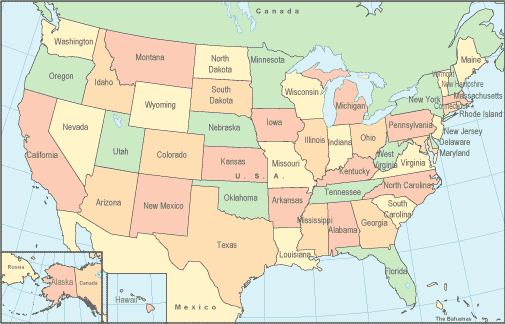 The
amusement season is quickly winding down as daily operation (for seasonal
parks) comes to a close and schools go back into session. Like schools, legislatures around the country
will also be heading into session shortly and, given the tragic and unfortunate
incidents in the amusement industry recently, it is likely that at least
some of these – maybe even at the federal level – will consider new regulation
of the industry. As I’ve detailed before
in my last two pieces, the siren song of federal regulation is almost
impossible to ignore in the wake of an amusement ride-related death or serious
injury. But the only real reason to look
seriously at replacing the current system with a new federal oversight program
is if the states' regulatory programs are not working. So, for my final piece in this series I
thought it would make sense to look at the evidence, or lack thereof, that
state regulation is failing.
The
amusement season is quickly winding down as daily operation (for seasonal
parks) comes to a close and schools go back into session. Like schools, legislatures around the country
will also be heading into session shortly and, given the tragic and unfortunate
incidents in the amusement industry recently, it is likely that at least
some of these – maybe even at the federal level – will consider new regulation
of the industry. As I’ve detailed before
in my last two pieces, the siren song of federal regulation is almost
impossible to ignore in the wake of an amusement ride-related death or serious
injury. But the only real reason to look
seriously at replacing the current system with a new federal oversight program
is if the states' regulatory programs are not working. So, for my final piece in this series I
thought it would make sense to look at the evidence, or lack thereof, that
state regulation is failing. About Me

- Erik H. Beard, Esq.
- I am a consultant and general counsel to International Ride Training LLC as well as a practicing attorney in Avon, Connecticut. A particular focus of mine is the legal needs of the amusement and tourism industry. My focus on the amusement industry derives from my pre-law career as an operations manager with Cedar Fair Entertainment Company and Universal Orlando. Having started my career as a ride operator at Cedar Point in 1992, I progressed through the seasonal ranks and ultimately became the Manager of Ride Operations and Park Services at Worlds of Fun in Kansas City. I also worked in Universal's operations department during the construction and development of Islands of Adventure. Today, I am an active member of the New England Association of Amusement Parks & Attractions and the International Association of Amusement Parks & Attractions. I have been invited to speak at amusement industry meetings and seminars and have worked on a variety of matters relating to this industry.
Legal Disclaimer (because, you know, I'm a lawyer)
This Blog/Web Site is made available for educational purposes only as well as to give you general information and a general understanding of the law, not to provide specific legal advice (or any legal advice). By using this blog site you understand that there is no attorney client relationship between you and the Blog/Web Site publisher and / or author nor can such a relationship be created by use of his Blog / Web Site. By using thisBlog / Web Site you understand that any statement on the blog site are solely those of the author and do not reflect the views of Wiggin and Dana LLP or International Ride Training LLC. By using this blog site you understand that the Blog/Web Site is not affiliated with or approved by Wiggin and Dana LLP or International Ride Training LLC. The Blog/Web Site should not be used as a substitute for competent legal advice from a licensed professional attorney in your state or jurisdiction. This blog is not published for advertising or solicitation purposes. Regardless, the hiring of a lawyer is an important decision that should not be based solely upon advertisements.
Tuesday, August 30, 2016
A Safer Ride? (Pt. 3) - Is State Amusement Regulation The Problem?
 The
amusement season is quickly winding down as daily operation (for seasonal
parks) comes to a close and schools go back into session. Like schools, legislatures around the country
will also be heading into session shortly and, given the tragic and unfortunate
incidents in the amusement industry recently, it is likely that at least
some of these – maybe even at the federal level – will consider new regulation
of the industry. As I’ve detailed before
in my last two pieces, the siren song of federal regulation is almost
impossible to ignore in the wake of an amusement ride-related death or serious
injury. But the only real reason to look
seriously at replacing the current system with a new federal oversight program
is if the states' regulatory programs are not working. So, for my final piece in this series I
thought it would make sense to look at the evidence, or lack thereof, that
state regulation is failing.
The
amusement season is quickly winding down as daily operation (for seasonal
parks) comes to a close and schools go back into session. Like schools, legislatures around the country
will also be heading into session shortly and, given the tragic and unfortunate
incidents in the amusement industry recently, it is likely that at least
some of these – maybe even at the federal level – will consider new regulation
of the industry. As I’ve detailed before
in my last two pieces, the siren song of federal regulation is almost
impossible to ignore in the wake of an amusement ride-related death or serious
injury. But the only real reason to look
seriously at replacing the current system with a new federal oversight program
is if the states' regulatory programs are not working. So, for my final piece in this series I
thought it would make sense to look at the evidence, or lack thereof, that
state regulation is failing. Monday, August 22, 2016
A Safer Ride? (Pt. 2) - What Would Federal Amusement Ride Regulation Cost & Do Regulators Even Want It?
The question of federal
oversight of amusement ride safety is one that comes up every summer in the
wake of an unfortunate, sometimes tragic, incident in the industry. But while many in politics and the media are
quick to speak out in favor of federal ride safety oversight, this rhetoric is
typically devoid of any detail. What
would a federal ride safety program look like?
What would it cost? And does the
agency that would be charged with administering it share the view that it would
be a good idea? In my last post, I made
my case for why I just do not see the federal government being any better (and
perhaps it would be worse) than the states when it comes to ride safety
oversight. But even setting that aside,
it is important to think about the details here and consider whether this
program might be not enough bang and too much buck.
Monday, August 15, 2016
A Safer Ride? (Pt. 1): Is The Federal Government A Better Regulator Than The States?
To state the obvious (and to understate the matter
significantly), this has been an extremely bad week in the amusement industry. The
week began with news of the
death of 10-year old Caleb Schwab at Schlitterbahn waterpark in Kansas City,
Kansas. Just days later, news broke of
an accident at a carnival in
Tennessee involving a Ferris wheel and resulting in injury and hospitalization
to three guests. And the week ended
with news that a
three-year old was thrown from a roller coaster at Idlewild amusement park in
Pennsylvania. As the public has
learned more about these incidents, and especially the
reportedly gruesome nature of Caleb’s death, the outcry for answers has
been immediate and unmistakable. The
media, in particular, has repeatedly focused on the so-called “patchwork” of
state regulations in the amusement industry and, more specifically, the fact that
there is no federal regulatory body overseeing ride safety in the United
States.
None of these criticisms are particularly new – indeed they
arise whenever a tragedy strikes our industry.
But this time, faced with the unbearably tragic death of a young boy at
a family-friendly waterpark, these criticisms seem to have gained more traction
in the public consciousness. It is
simply impossible to look at a picture of Caleb Schwab and to not feel the
greatest empathy for his family and to not want to make changes to ensure that
no other family has to ever go through this again. It is easy to argue, as Jake Tapper recently did
on CNN, that the system failed Caleb, and that the answer is federal oversight.
But, even after this week, one of the worst I can remember
in the nearly 25 years I’ve been involved in the industry, I still maintain
that federal ride safety regulation is not the answer. And I think it’s time, after all these years
writing this blog, that I explain exactly why I feel that way. As I’ve done with other important issues in
the industry, I’m going to look at this in three parts: In this piece, I’m going to look at the
question of whether the federal government is somehow inherently “better” than
the states at regulating. The next piece
will look at what a potential federal ride safety program might actually look
like and, critically, how much it might cost U.S. taxpayers. The third will look at the question of
whether there is any actual evidence that state regulation is not working. The media has made their case. It’s time for me to make mine.
Subscribe to:
Posts (Atom)

